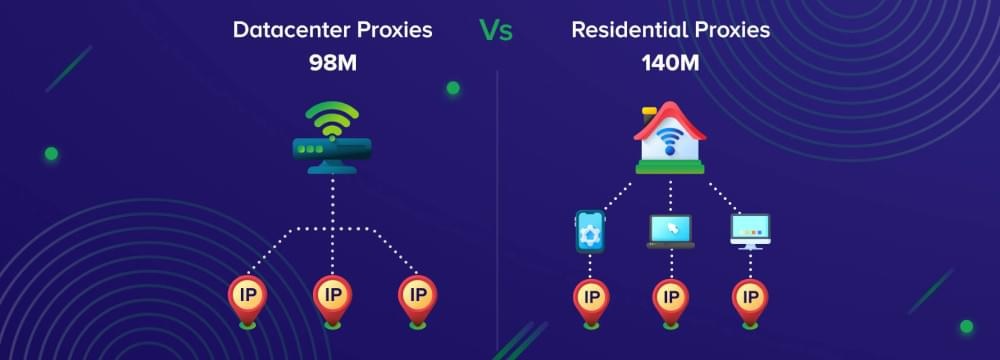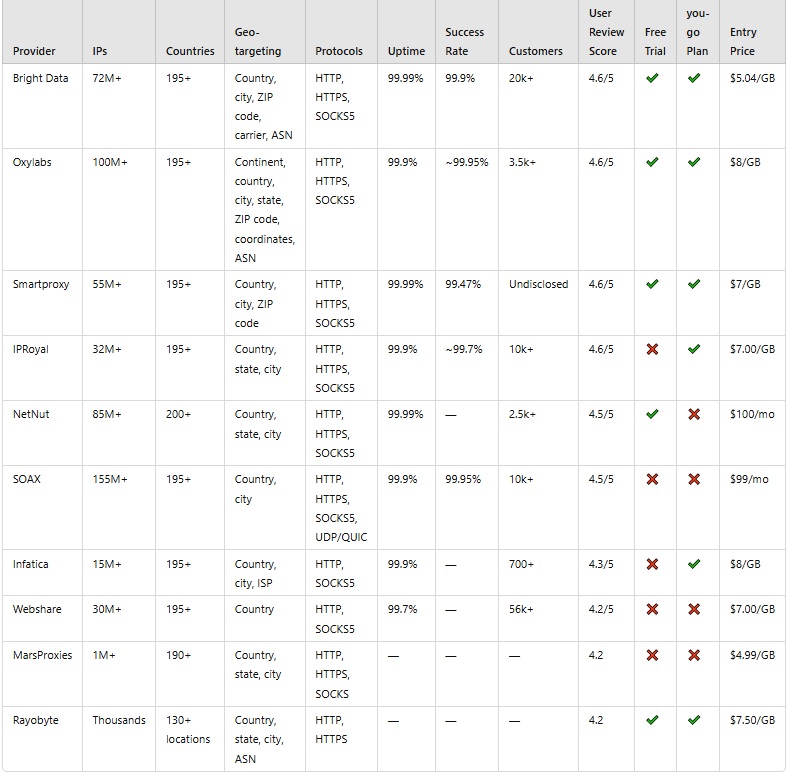The need for privacy and anonymity online has driven many individuals and businesses to seek out residential proxies. These proxies, which use IP addresses assigned to residential homes, offer a degree of anonymity that traditional data center proxies cannot provide.
However, allocating your own IP for residential proxies comes with significant risks. Here’s why you should think twice before venturing down this path.
1. Legal Implications
One of the most pressing concerns when allocating your own IP for residential proxies is the potential for legal repercussions. Using your residential IP to mask online activities can easily lead to violations of terms of service, particularly on platforms that explicitly prohibit proxy usage.
This could result in account bans or even legal action against you, especially if your IP is linked to illicit activities conducted by others.
2. Security Risks
By sharing your residential IP, you expose your personal network to a range of security vulnerabilities. Malicious users can leverage your IP address to conduct illegal activities, which may lead to law enforcement tracking you down.
Furthermore, if your connection is exploited, you could become a target for cybercriminals seeking to infiltrate your network, leading to potential data breaches and loss of sensitive information.
3. Performance Issues
Residential proxies are typically slower than data center proxies due to their reliance on home networks. When you allocate your own IP for this purpose, the increased load from multiple users can degrade your internet speed, leading to a frustrating experience for both you and those using your proxy. This performance hit can hinder your online activities, making it an inefficient choice.
4. Impact on Your ISP
Many internet service providers (ISPs) have policies against using residential connections for proxy services. If they detect unusual activity or a high volume of data usage associated with your IP, they may throttle your connection or even suspend your service.
This could leave you without internet access and could potentially damage your relationship with your ISP.
5. Reputation Damage
If your IP address is associated with spam, bot activity, or other malicious online behavior, your reputation could suffer. This can affect everything from personal relationships to business dealings, as others may view your IP as a source of unwanted or harmful content.
Once your IP gains a bad reputation, it can be challenging to rectify, impacting your online identity for the long term.
6. Limited Control and Accountability
Allocating your own IP for residential proxies means you are responsible for the activities conducted through that IP. If your proxy is used for malicious purposes—like data scraping or conducting cyberattacks—you may find yourself in a precarious position. Accountability becomes a major issue; as the proxy owner, you could be held liable for actions taken by others.
7. Alternative Solutions Exist
Given the myriad risks associated with using your own IP for residential proxies, it’s worth considering alternative solutions. Many reputable proxy service providers offer residential proxies that ensure privacy without the inherent risks of allocating your own IP.
These services often include robust security measures, customer support, and the ability to scale usage without impacting your personal internet connection.
Datacenter vs Residential Proxies

Residential proxies have proven to be more popular than datacenter proxies, boasting over 72 million IP addresses compared to around 770,000 for datacenter proxies.
Because residential proxies utilize legitimate IP addresses, they offer a high level of security. However, if a residential IP gets banned from a website, replacing it can be challenging.
In contrast, datacenter proxies are easier to detect since they don’t belong to residential Autonomous System Numbers (ASNs), making them more vulnerable to being blacklisted by websites.
Why use Residential Proxies?
- Permissible Usability
Since the residential proxy is a proxy to which ISP gives IPs, they are quite genuine and authentic with permissible usability.
Since datacenter proxies, as mentioned earlier, are created in volumes by the cloud based proxy server providers, so can be quickly banned by the internet if you buy them from a non-trusted provider.
Proxies work by offering a gateway between you and a web server you are trying to request information from. You can be anonymous with your online activity with them.
Not all proxies are made equivalent, and as platforms gain insight, you must stay aware of your organisation’s abilities within your software stack.
Drawbacks of Residential Proxies
- Comparatively Lethargic Performance
Residential proxies add one more element to the connection chain: the residential end-point (the actual PC at somebody’s home or business).
Moreover, you’re not confidently sure if the end client has good Internet. All else being the same, these proxies are comparatively lethargic in performance than that of datacenter IPs.
- Intermittent Connectivity
The end-user can disconnect whenever he wants and will lose the connection because residential proxies have intermittent connectivity. In this way, regardless of whether a provider allows you to save similar IP for ten or 20 minutes, there is no guarantee that you will have the option to do that.
Just shared IPs back-connect servers give all customers induction to a comparative pool, suggesting that you’ll need to share IPs with others.
Best Residential Proxy Providers: Summary Table
Compare the top residential proxy providers in the summary table below:

Bright Data operates the best proxy network in the world, utilised by several Fortune 500 companies and over 20,000 customers. The global proxy network includes:
- 1. Residential proxies – Over 72M residential IPs in more than 195 countries
- 2. Datacenter proxies – Over 770,000 datacenter IPs
- 3. ISP proxies – Over 700,000 ISP IPs
- 4. Mobile proxies – Over 7M mobile IPs
Conclusion
While the allure of using your own IP for residential proxies may seem appealing due to potential cost savings and control, the risks far outweigh the benefits.
From legal and security implications to performance issues and reputation damage, allocating your own IP can lead to a host of problems that can affect both your personal and professional life.
Instead, consider using established proxy services that prioritise user safety and anonymity, allowing you to enjoy the benefits of proxies without the associated dangers.







